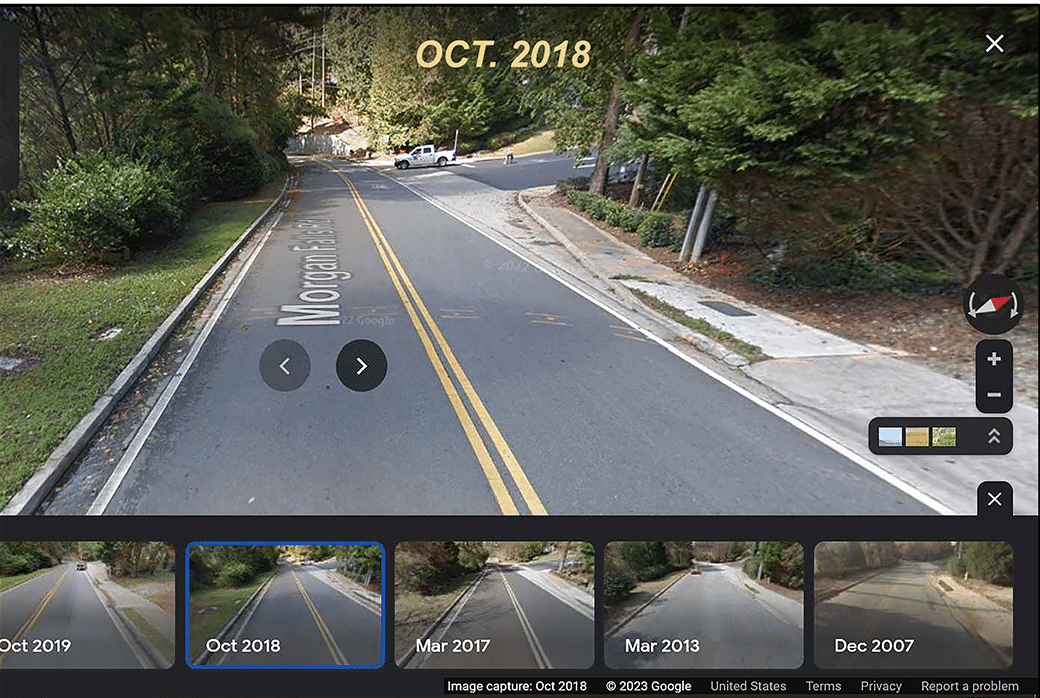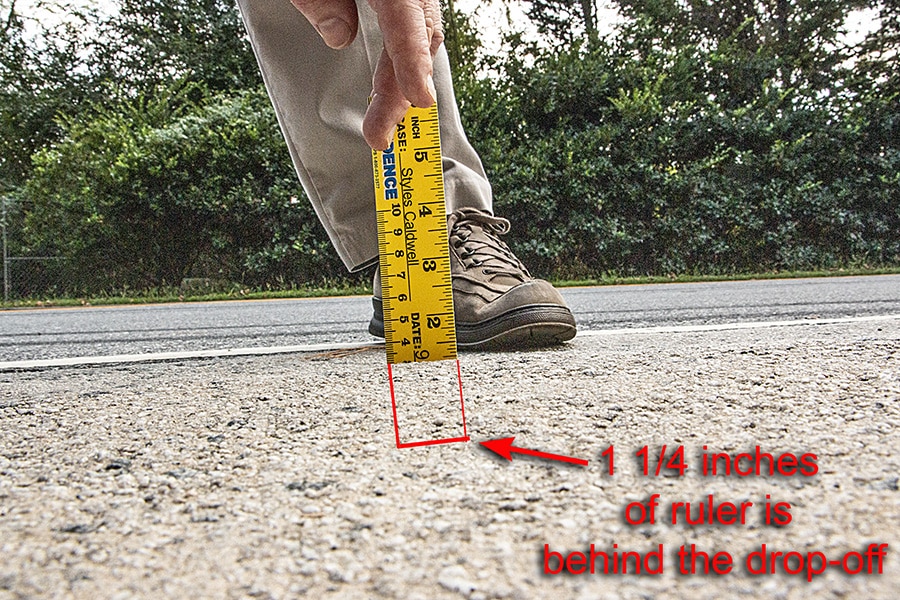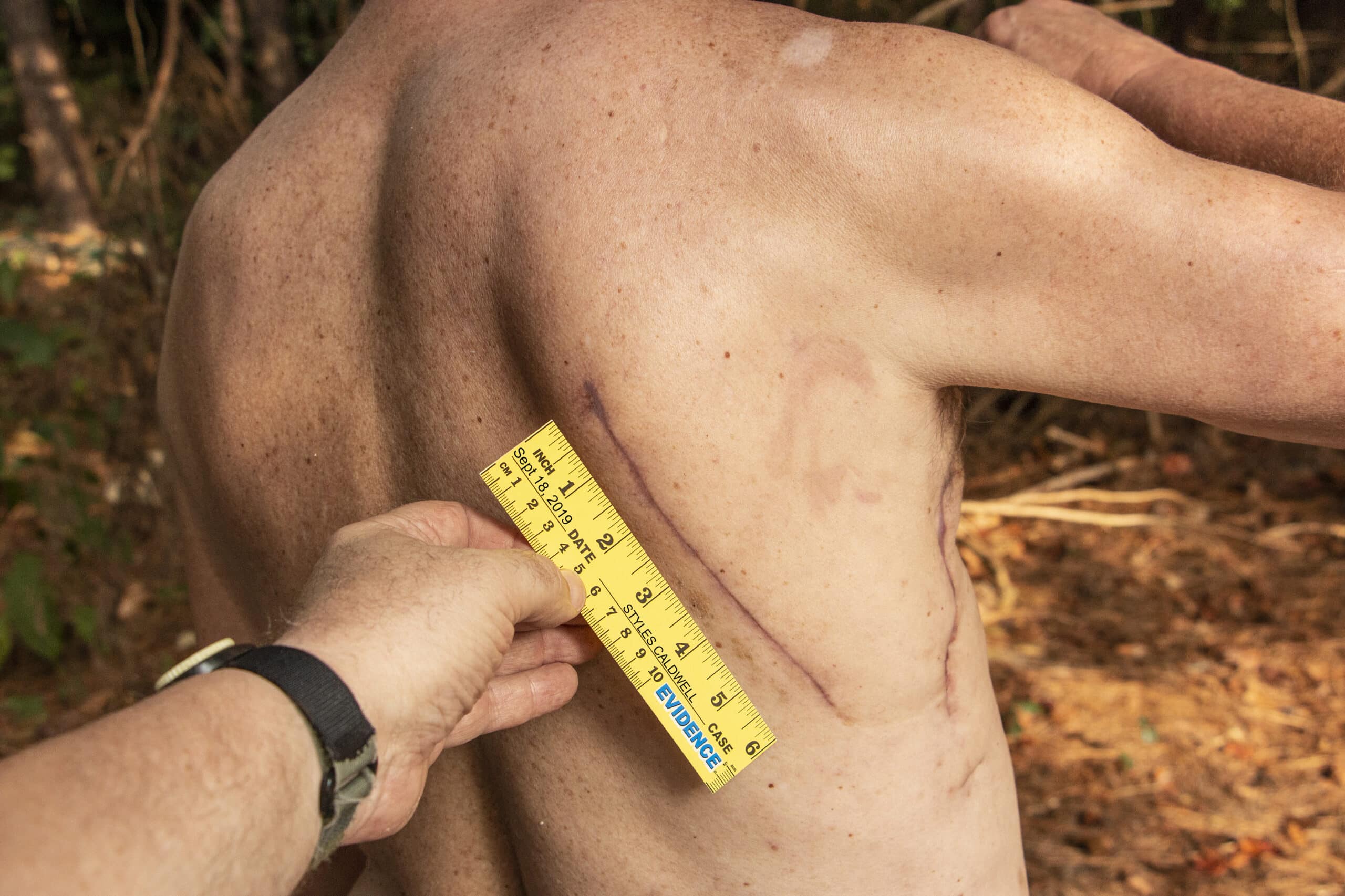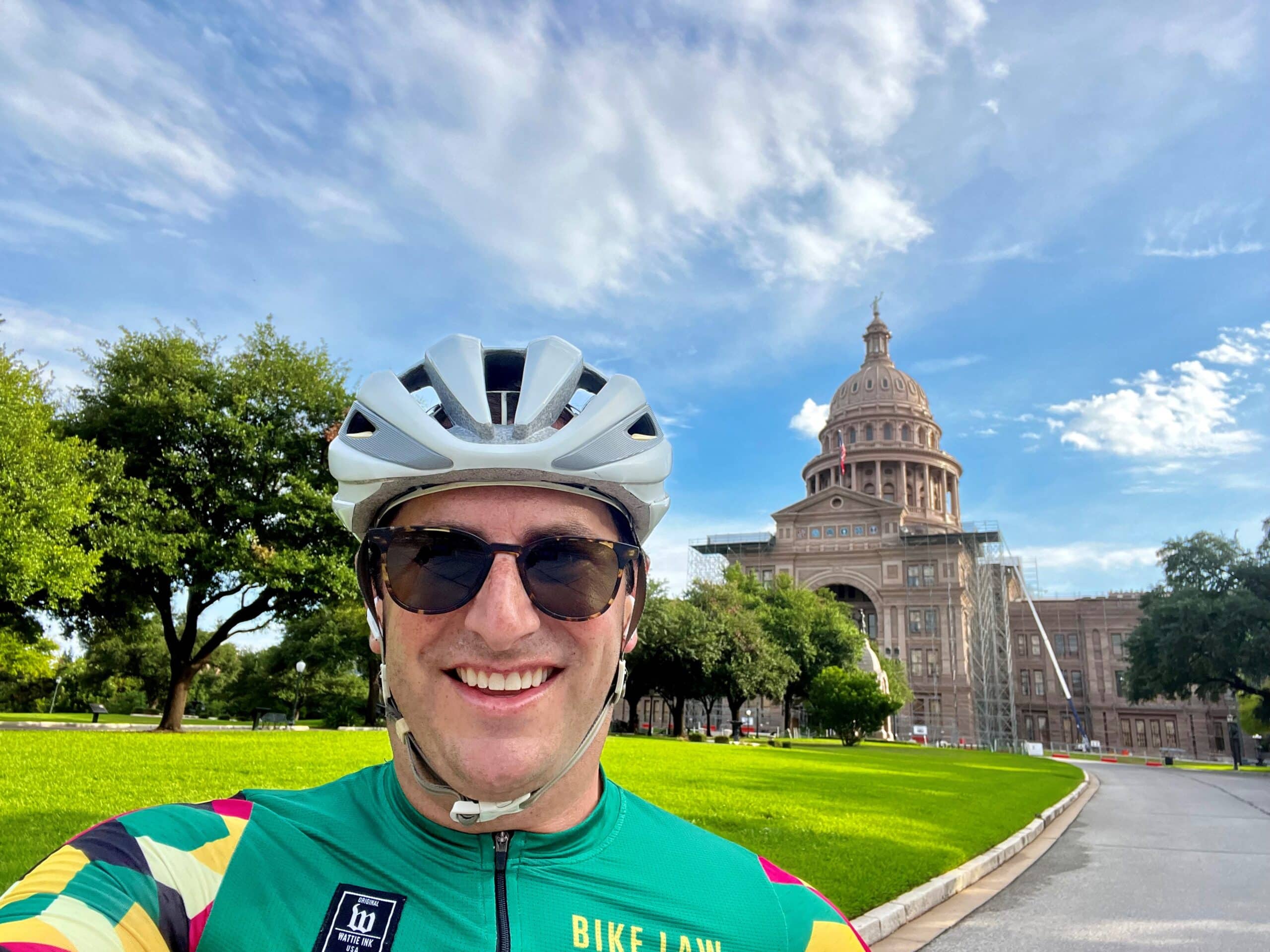We recently shared the story of a trial victory from the State of Texas where a bicyclist was injured due to a defect in a road maintained by the Texas Department of Transportation. Texas Road Defect We now can tell the story of another huge win in a road defect case, this time from our Bike Law Georgia Network attorney Bruce Hagen and his team at Hagen Rosskopf.
While there are many similarities in the cases, a couple of key differences between Texas and Georgia law were instrumental in getting this case resolved via settlement rather than trial.
The Crash
On July 23, 2019, Styles Caldwell, a 68 year old Videographer, was riding his mountain bike near his residence in the City of Sandy Springs, Georgia. Styles was riding on a slight downhill grade and intended to turn right at the driveway entrance to the apartment complex where he lived. Styles usually rode his bicycle on the sidewalk, but on this day pedestrian traffic caused him to ride in the roadway.

Although Styles had driven his car in and out of the apartment complex before, he had never before come from the roadway into the driveway while riding his bicycle. As a result, he had never before noticed or appreciated the 1.25 – 1.50” longitudinal ridge located in the concrete apron that separated the asphalt road and driveway entrance.

As Styles gradually transitioned from the road to the driveway on his mountain bike, his front tire caught the ridge, throwing him hard to the ground. He suffered several pulverized ribs and a broken collarbone, all of which required surgical repair. His medical care was intense and painful, and he was left with over $60,000 in reimbursable medical expenses.

Styles reached out to Bruce Hagen for help. After obtaining documents from the City of Sandy Springs through an Open Records Request, it was revealed that the City had implemented a plan to build out a bicycle network that included Morgan Falls Road, the road on which Styles’ apartment complex was located. In 2014, Morgan Falls Road had been assessed a grade of “F” in terms of its Bicycle Level of Service, which was the lowest possible grade. A large engineering firm that bid for the job indicated that some redesign was necessary for the section of road where Styles’ apartment complex was located. The City rejected outside engineering and construction management and chose instead to keep costs down by handling the project in-house.
Between 2016-2017, Sandy Springs completed improvements to Morgan Falls Road including resurfacing, designating some short segments of Bike Lanes and marking bicycle sharrows, as well as constructing an adjacent sidewalk. On its website, City of Sandy Springs proudly proclaimed that the Bicycle Infrastructure improvements for Morgan Falls Road bike lanes and sharrows had been successfully installed.
What was left out, however, was that in the course of performing the redesign and construction of the road, the City of Sandy Springs allowed a dangerous condition to persist, specifically, the severe lip at the entrance to the apartments.
Unlike the Texas case, we lacked a “Smoking Gun” witness to establish that the City had actual notice of the dangerous condition prior to Styles’ fall. However, using Google Maps imaging, Bruce’s team was able to establish that the condition had existed since at least 2007. Construction and Design drawings indicated that the hazard was likely created when the apartment complex was developed in the late 1990’s in what was then unincorporated Fulton County, before the City of Sandy Springs had been created in 2005. While it could not be established that the City had actual notice (meaning there was no record of a prior complaint about the hazard), the hazard existed for a long enough period of time given the recent road construction that the City had constructive notice of the danger, meaning that they should have known that the hazard existed.
The Litigation
Unfortunately, the City would not accept responsibility for Styles’ injuries, so it became necessary to file a lawsuit in order to pursue justice for our client. Since the City would not even acknowledge its responsibility for the area where the crash occurred, the lawsuit included other defendants who were potentially responsible for creating or maintaining the hazard. A lawsuit was filed in August, 2020.
Bruce Hagen’s law firm was assisted by 2 different engineering experts in road design and construction, Herman Hill from Atlanta and Daren Marceau of Forensic Traffic Specialists in Cary, NC. After extensive discovery and multiple depositions, a failed mediation at which NOTHING was offered to Styles, and successfully fending off various defense motions, it became clear that (a) the City had responsibility for the area where the crash occurred, (b) there was sufficient evidence to show that the City had knowledge of the hazard and failed to do anything to fix the problem, (c ) that the City had a duty to fix problems on it’s roads that create dangers to cyclists and (d) the City did not have the protections of Sovereign Immunity for this type of negligence. Once trial was imminent, the City got realistic about settlement discussions and we were able to get the case resolved.
Why Did The Georgia Case Settle But The Texas Case Went to Trial?
Holding governmental entities responsible for the harm they cause to bicyclists and pedestrians is a difficult matter and there has to be an alignment between both the law and the facts to be successful. In Texas, lawmakers had imposed severe limitations on the ability to hold the State responsible for the harm it causes, which was done under the guise of “Tort Reform”. The recovery in claims against the State of Texas for injuries caused by road defects is limited to a maximum amount of $250,000. This means that Texas has no incentive to make its roads safe for cyclists because, ultimately, they only have a small amount of exposure. It also forces cases to trial that would otherwise get resolved voluntarily through settlement, because there’s no fear of a significant verdict. In other words, Texas is virtually unaccountable.
In Georgia, the State’s sovereign immunity for negligent road design, construction or maintenance is only waived under very specific circumstances and claims are subject to a $1,000,000 cap. Counties are largely immune although specific individuals may sometimes be held responsible if it can be proved that they violated a specific ministerial duty. Cities like Sandy Springs, however, are “relieved of any and all liability resulting from or occasioned by defects in the public roads of its municipal street system when it has not been negligent in constructing or maintaining the same and when it has no actual notice thereof or when such defect has not existed for a sufficient length of time for notice thereof to be inferred.” There is no cap on a City’s liability for injuries caused by road defects.
As a result (a) cities in Georgia are generally more responsible about keeping their roads in decent condition (City of Atlanta being a notable exception) and (b) an injured victim like Styles Caldwell can obtain justice in Court, if needed. The threat of accountability in a trial where damages are not limited by an artificial cap is oftentimes enough to help the parties reach an amicable settlement. In this case, although it took a tremendous effort to get there, the ultimate result was that the City was held accountable for Styles’ injuries. Justice was Served!
The Team That Obtained Justice for Styles Caldwell
Kendrick K. McWilliams, Sr., led the litigation team in the case against the City and the other 2 defendants. His tireless efforts left the City in a situation where they simply could not wriggle out of responsibility. Dan Pruitt, a paralegal with the firm, was relentless in helping the attorneys prepare the case for success. Their combined efforts were instrumental in achieving the great result for our client.
If you have been in a bike crash and need help from our Georgia bicycle accident attorneys, contact us right away.

Bike Law founder and bicycle crash lawyer Peter Wilborn has raced, toured, commuted, and ridden his bike daily for fun. In 1998, Peter had a bike tragedy in his own family, realized firsthand the need for lawyers who understand cycling, and devoted his law practice to Bike Law.







